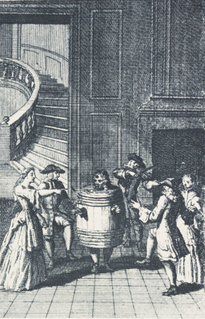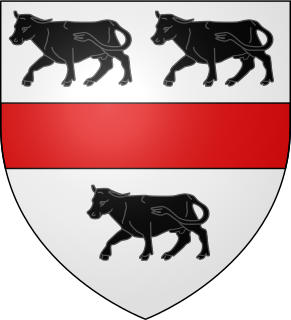
Aphra Behn was an English playwright, poet, translator and fiction writer from the Restoration era. As one of the first English women to earn her living by her writing, she broke cultural barriers and served as a literary role model for later generations of women authors. Rising from obscurity, she came to the notice of Charles II, who employed her as a spy in Antwerp. Upon her return to London and a probable brief stay in debtors' prison, she began writing for the stage. She belonged to a coterie of poets and famous libertines such as John Wilmot, Lord Rochester. She wrote under the pastoral pseudonym Astrea. During the turbulent political times of the Exclusion Crisis, she wrote an epilogue and prologue that brought her into legal trouble; she thereafter devoted most of her writing to prose genres and translations. A staunch supporter of the Stuart line, she declined an invitation from Bishop Burnet to write a welcoming poem to the new king William III. She died shortly after.

"Restoration comedy" is English comedy written and performed in the Restoration period of 1660–1710. Comedy of manners is used as a synonym for this. After public stage performances were banned for 18 years by the Puritan regime, reopening of the theatres in 1660 marked a renaissance of English drama. Sexually explicit language was encouraged by King Charles II (1660–1685) personally and by the rakish style of his court. Historian George Norman Clark argues:
The best-known fact about the Restoration drama is that it is immoral. The dramatists did not criticize the accepted morality about gambling, drink, love, and pleasure generally, or try, like the dramatists of our own time, to work out their own view of character and conduct. What they did was, according to their respective inclinations, to mock at all restraints. Some were gross, others delicately improper.... The dramatists did not merely say anything they liked: they also intended to glory in it and to shock those who did not like it.
George Wilkins was an English dramatist and pamphleteer best known for his probable collaboration with William Shakespeare on the play Pericles, Prince of Tyre. By profession he was an inn-keeper, but he was also apparently involved in criminal activities.

Oroonoko: or, the Royal Slave is a short work of prose fiction by Aphra Behn (1640–1689), published in 1688 by William Canning and reissued with two other fictions later that year. It was also adapted into a play. The eponymous hero is an African prince from Coramantien who is tricked into slavery and sold to European colonists in Surinam where he meets the narrator. Behn's text is a first-person account of Oroonoko's life, love, rebellion, and execution.

A Yorkshire Tragedy is an early Jacobean era stage play, a domestic tragedy printed in 1608. The play was originally assigned to William Shakespeare, though the modern critical consensus rejects this attribution, favouring Thomas Middleton.

Mary Pix was an English novelist and playwright. As an admirer of Aphra Behn and colleague of Susanna Centlivre, Pix has been called "a link between women writers of the Restoration and Augustan periods".

Calverley Old Hall is a medieval manor house with Grade I listed building status situated at Calverley, West Yorkshire, England.

Mary Saunderson (1637–1712), later known as Mary Saunderson Betterton after her marriage to Thomas Betterton, was an actress and singer in England during the 1660s and 1690s. She is considered one of the first English actresses.
The History of the Nun, or The Fair Vow Breaker, is a novella by Aphra Behn published in 1689. It is a piece of amatory fiction.

Love-Letters Between a Nobleman and His Sister is an anonymously published three-volume roman à clef playing with events of the Monmouth Rebellion and exploring the genre of the epistolary novel. It has been attributed to Aphra Behn, but this attribution remains in dispute. The novel is "based loosely on an affair between Ford, Lord Grey of Werke, and his wife's sister, Lady Henrietta Berkeley, a scandal that broke in London in 1682". It was originally published as three separate volumes: Love-Letters Between a Noble-Man and his Sister (1684), Love-Letters from a Noble Man to his Sister: Mixt with the History of Their Adventures. The Second Part by the Same Hand (1685), and The Amours of Philander and Silvia (1687). The copyright holder was Joseph Hindmarsh, later joined by Jacob Tonson.
Thomaso, or the Wanderer is mid-seventeenth-century stage play, a two-part comedy written by Thomas Killigrew, The work was composed in Madrid, c. 1654. Thomaso is based on Killigrew's personal experiences as a Royalist exile during the era of the Commonwealth, when he was abroad continuously from 1647 to 1660.

Walter Calverley was an English squire and murderer. His story became the basis of more than one literary work of the early 17th century.

Mary Slingsby, Lady Slingsby, d.1693, actress) was an English actress. After a marriage lasting 1670 to 1680 to John Lee, an actor, during which she was on the stage as Mrs. Lee, she was widowed. She then married Sir Charles Slingsby, 2nd Baronet, nephew of Sir Robert Slingsby, and performed as Lady Slingsby. Theatre historians have pointed out the difficulty in identifying her roles in the period when Elinor Leigh, wife of Anthony Leigh, was performing as Mrs. Leigh, because the homophones "Lee" and "Leigh" were not consistently spelled at the time.

The Fair Jilt: or, the Amours of Prince Tarquin and Miranda is a short novella by Aphra Behn published in 1688.

John Hoyle was a bisexual lawyer in London and a lover of the writer Aphra Behn. Behn's relationship with Hoyle was the "dominating one" in her life.
The Town Fop or, Sir Timothy Tawdry, is a Restoration comedy written by Aphra Behn and first staged in 1676. It deals with an unhappy marriage and its dissolution.
The False Count, Or, A New Way to play An Old Game, is a comedic play written by Aphra Behn, first performed in 1681 and published in 1682. It was staged by the Duke's Company at the Dorset Garden Theatre in London. The cast included William Smith as Don Carlos, James Nokes as Francisco, John Freeman as Sebastian, John Wiltshire as Antonio, George Bright as Baltazer, Cave Underhill as Guzman, Anthony Leigh as Guilion, Elizabeth Currer as Isabella and Margaret Osborne as Jacinta.

Sir Patient Fancy: A Comedy, is a comedic play written by Aphra Behn, first performed in 1678. It is Behn's first overtly political play. It was staged by the Duke's Company at the Dorset Garden Theatre in London with a cast that included Nell Gwyn as Lady Knowell, Anthony Leigh as Sir Patient Fancy, John Crosby as Leander Fancy, Thomas Betterton as Wittmore, William Smith as Lodwick Knowell, James Nokes as Sir Credulous Easy, John Richards as Curry, Elizabeth Currer as Lady Fancy, Mary Betterton as Isabella, Emily Price as Lucretia and Anne Shadwell as Maundy.
John Bowman (1651–1739) was a British stage actor. He began his career in the Duke's Company at the Dorset Garden Theatre. In 1692 he married Elizabeth Watson, who acted under the name Elizabeth Bowman. He later switched to act at the Drury Lane Theatre. He is also referred to as John Boman.
Thomas Percival or Percivall was an English stage actor of the seventeenth century. He was a member of the Duke's Company from 1671 to 1682 and then the merged United Company until 1686. Throughout his career he was confined to playing supporting roles, never graduating to major parts. He was the father of the actress Susanna Verbruggen. In 1693, following his retirement from the stage, he was arrested for coin clipping, a capital crime, for which he was sentenced to hang at Tyburn. The intercession of his daughter with Mary II saw his sentence commuted to transportation, but before he reached Portsmouth he died of natural causes.













